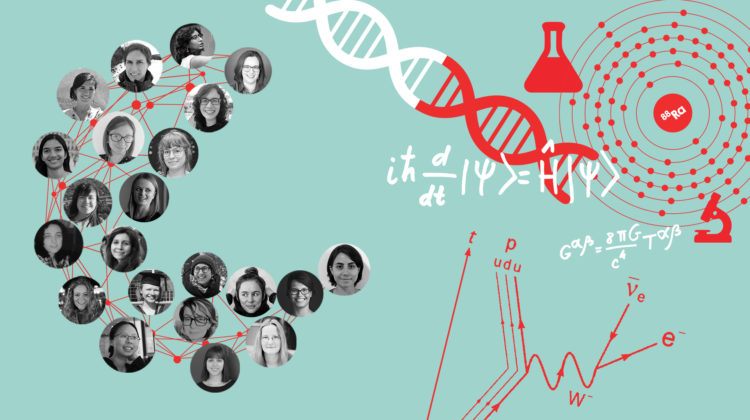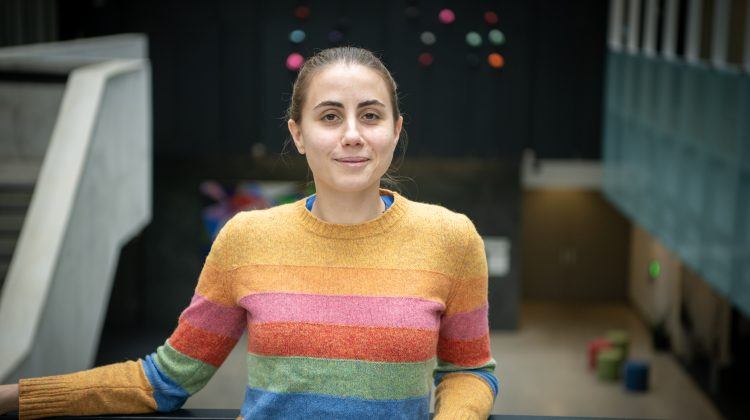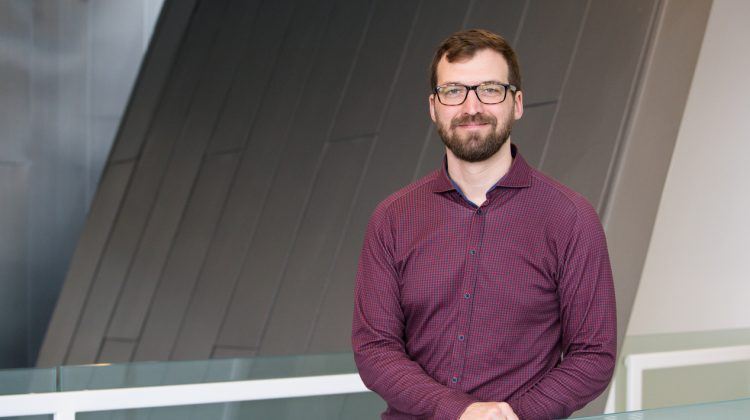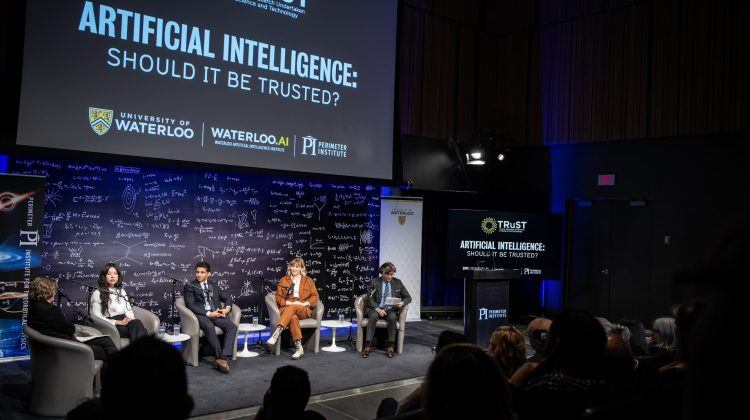Novel connections and “gravitational surprises” at 2024 PSI Winter School
Fun and intense academic research are a great mix at this year’s winter school.
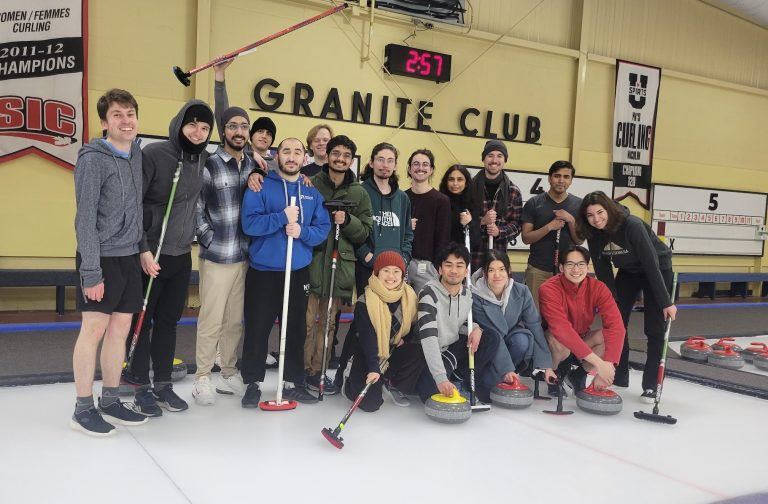
For Canada, it has been a warm winter. But for Maitá Micol, who is used to the tropical climate of her native Brazil, the curling and ice skating nevertheless plunged her into something completely new, even if the ice skating was full of gravitational surprises, as she puts it.
Micol was one of the Perimeter Scholars International (PSI) master’s program students taking part in this year’s one-week “winter school” that was designed to mix fun with collaboration and introduce the students to subjects in physics that they may not have had a lot of exposure to.
The master’s program, now in its 15th year at Perimeter, exposes brilliant students from around the world to the full breadth of theoretical physics in just one year.
It is taught by top physicists, offered in collaboration with the University of Waterloo, which acts as the degree-granting institution. Since the program’s beginnings, its graduates have gone on to PhD studies and postdoctoral research positions at top academic institutions such as Oxford, MIT, Caltech, and Harvard.
Some have also landed at private companies around the world, where they are making research breakthroughs in areas ranging from quantum computing to the development of new materials.
The winter school is a type of break from the usual academic rigours that master’s students are immersed in. During one week in February, they work on collaborative projects (usually in an area different from their chosen master’s essay). But the work is interspersed with tubing, curling, skating, a crokinole and chess night, a movie night, and other social activities.
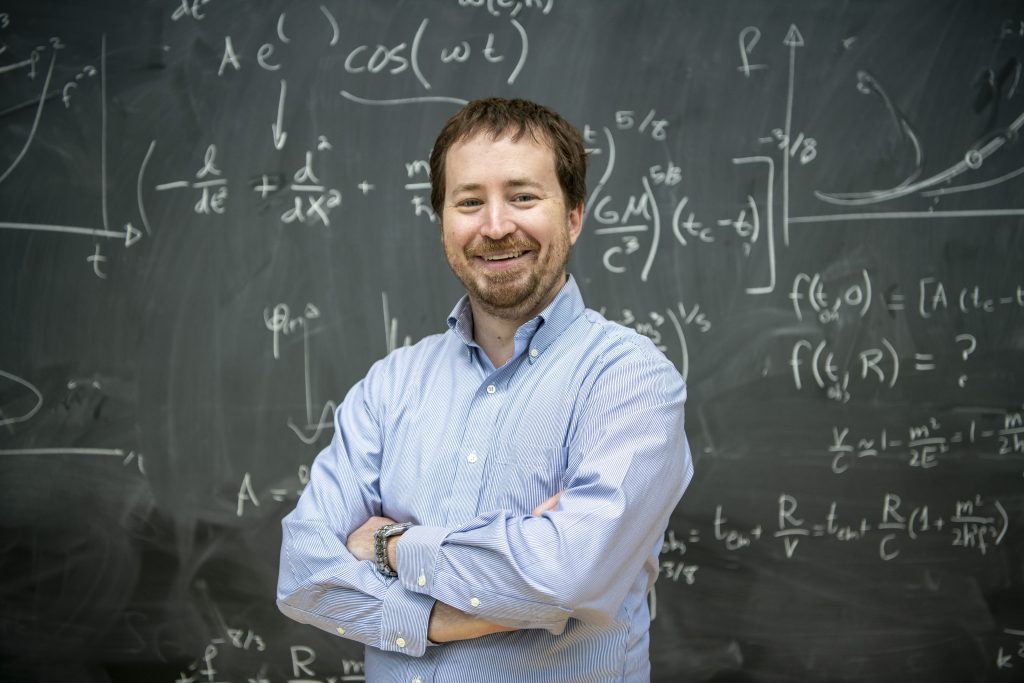
“The winter school develops students’ research and collaboration skills,” says Dan Wohns, associate director of training programs at Perimeter. “The unique knowledge and skill sets will enable them to make novel connections between disparate research areas in their future studies and research.”
In addition, those connections can help them find their supervisors and research topics for their future PhD thesis.
But they also get a chance to bond with one another. The 23 students in the 2023/24 PSI class (plus two other students doing PSI internships) are from all over the world. Besides Canada, the members of this year’s class hail from Australia, Bangladesh, Brazil, Cameroon, China, Czech Republic, France, Georgia, Greece, India, Iran, Ireland, Montenegro, South Africa, South Korea, Thailand, and the United States.
Micol’s main theoretical physics interests are in the realm of classical and quantum gravity. But at the winter school, she got a chance to work with Faculty member Robert Spekkens, who co-leads the Quantum Causal Inference initiative at Perimeter.
Quantum causal inference involves extracting cause-and-effect insights from large statistical datasets. “Understanding causal structures is fundamental to all the sciences,” Micol says. At the winter school, her group also engaged in “fascinating philosophical discussions” about the interpretations and limitations of theories in quantum foundations.
The students describe it as an invigorating week.
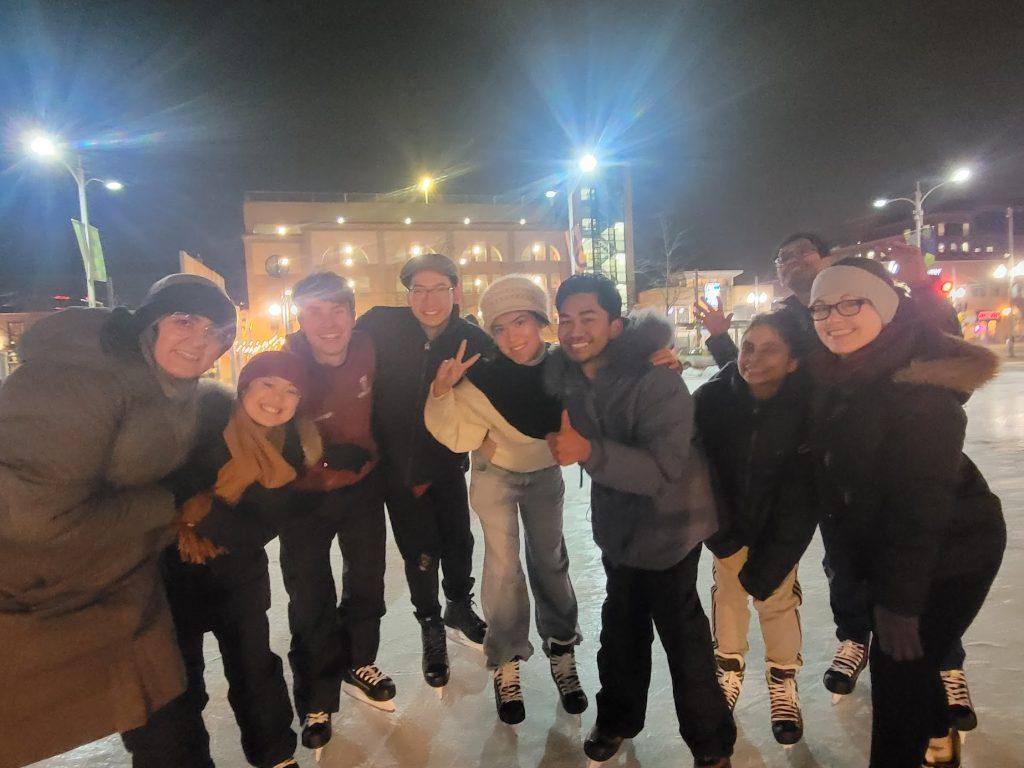
Gurpahul Singh, a PSI student who hails from the city of Ludhiana, about an hour’s drive from the towering Himalayas in the northern part of India, also experienced his first winter in Canada.
“I was apprehensive [coming to Canada] since the minimum temperature in Ludhiana would be around 3 or 4 degrees Celsius,” Singh says.
Normally, southwestern Ontario sees temperatures well below zero in February, but during this year’s winter school, temperatures reached as high as 5.8 degrees. Despite the milder-than-usual weather, Singh had a chance to enjoy ice skating and tubing for the first time in his life.
“I did fall [while skating] more than the number of times I would like to admit, but it is definitely a core memory for me now,” he says. “During the tubing experience, I recorded multiple videos with my peers while going down the slope – holding tightly onto my phone for its dear life.”
Singh also had a chance to explore a quantum computing project with Barbara Šoda, a Perimeter postdoctoral researcher, and Tales Rick Perche, a PhD student. It involved acceleration-induced transparency, a recently discovered phenomenon in light-matter interactions. They were able to propose a quantum computing paradigm that could be more robust to noise.
Ever since he was a child, Singh has been fascinated by how underlying laws can explain the aspects of nature that we see around us. When he finished his studies as an undergraduate student in India, he wanted to come to Perimeter to do his master’s.
“I am very intrigued by how organized the courses here are and the collaborative nature of tutorials, homework, and even projects like the winter school,” he says. “I think it teaches us so much about working as a team in a research environment, which is extremely instrumental for our careers as successful scientists.”
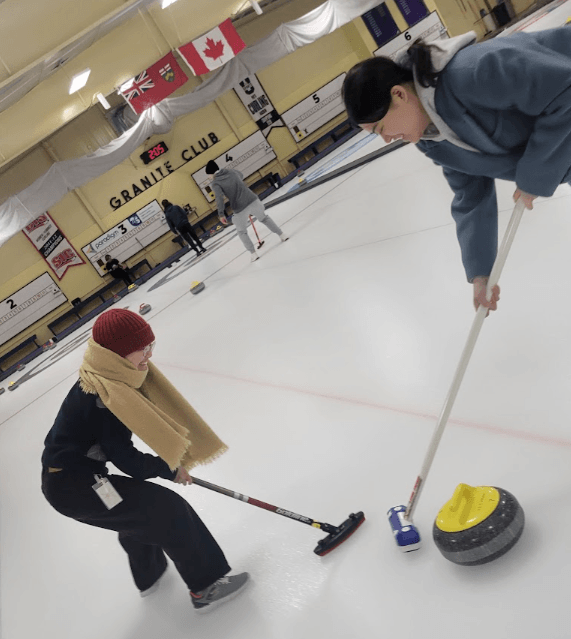
Another PSI master’s student enjoying Canadian winter activities for the first time was Zurab Jashi, who was born and raised in Tbilisi, the capital of Georgia. He did his undergraduate work at NYU Abu Dhabi in the United Arab Emirates. “Curling looks way easier on TV than in actual life,” he says.
Jashi is planning to get into condensed matter physics for his PhD, but during the winter school program, he and his teammates had a chance to learn from Perimeter Faculty member Freddy Cachazo, a world-leading expert in using scattering amplitudes to describe particle physics interactions.
Jashi says he enjoys the atmosphere of enthusiasm for physics at Perimeter, where the courses are fast and intense, as well as the openness of the faculty and the friendships he has made.
“Our mentors and teachers are dedicated and putting a lot of effort into helping us understand physics and modern research,” Jashi says. “I came to Perimeter to learn physics and it has been an amazing year.”





















































































